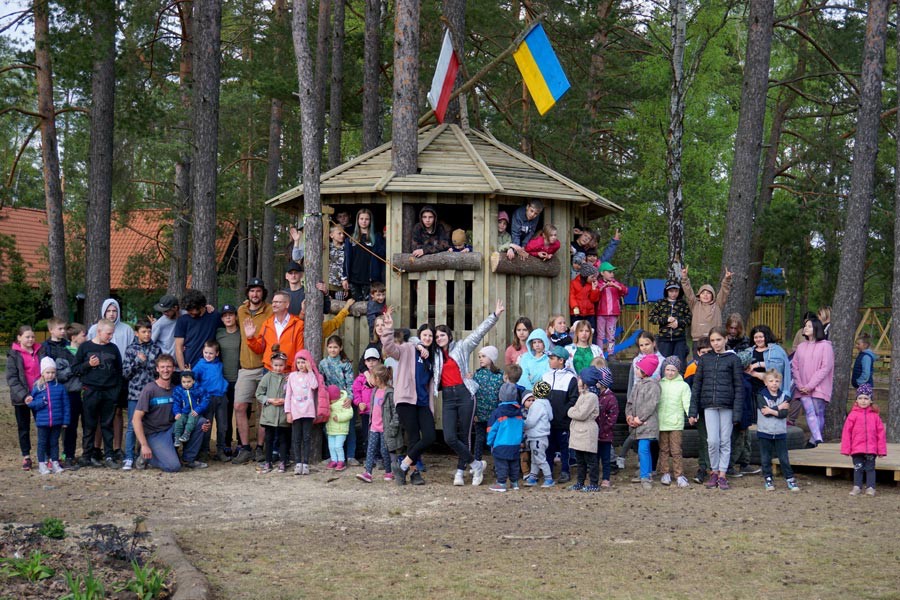On March 2 Wieslaw Baryla received a phone call from the local Polish municipality telling him to prepare his summer camp for 121 Ukrainian unaccompanied minors. Thirty-six hours later they arrived.
The Pol says the easy part was repurposing the camp - most recently used as a coronavirus isolation facility - overnight. Now he’s committed to supporting the kids aged between 10 months and 17 years old until the war is over.
“On the whole the kids are happy, they’re smiling, they’re full,” said the camp director.

“They have education and things to play with but, it’s not where they want to be. When I talk to the caregivers, or the kids, about wanting to return to Ukraine, every time - no matter how much we help, or how good they seem to have it here - they all want to return to their country as soon as possible. They’ll be here until the end of the war, and not one day more.”
Movement On The Ground is working in the camp alongside Wieslaw, helping facilitate the logistics and operations involved in running the facility that’s normally a summer camp for Polish children and teens.
Perhaps the biggest hurdle for camp staff and the Ukrainian caregivers is keeping the kids entertained, especially as the school year finishes and online education has been put on hold for the summer holidays.
“They are so active,” he said.

At the lakeside camp activities include kayaking, sailing, raft building, archery, basketball, football, volleyball and dancing - to name a few.
Wieslaw, a grandfather himself, has barely had a day off since the minors arrived and says the weight of running the camp in its current context can be overwhelming.
“It is a big challenge and a big responsibility. But even if it’s hard for me, I try not to let it be seen if I’m struggling with the whole situation.”
Since the war began it’s estimated more than three million Ukrainians have fled to Poland and Wieslaw says that from the moment Russia invaded, he knew his camp would be used as a reception facility.

“But before the Ukrainian war, we were looking at the situation in Belarus and wanting to help. However, it was very hard to do that.”
At the end of 2021 the number of asylum seekers trying to enter Europe from neighbouring countries increased. However, a failing European asylum system meant many people got stuck in inhumane conditions at the borders.
“When the conflict in Ukraine happened, all those feelings of wanting to help had been piled up, so then everyone just did what they could,” Wieslaw said.

It’s a message Wieslaw believes any community that finds itself hosting a refugee population should have front of mind.
“The most important thing is to keep in contact with these people; see their needs, how to talk to them and get the good energy flowing through the will of the Polish people.”
It’s impossible to predict when the war in Ukraine will end, but Wieslaw says they are prepared for the kids to leave any day. They’re also prepared for them to stay until the Spring of 2023.
“As long as they’re here, and even when they leave, we’ll still support them. We have a strong emotional connection with this group of kids.”
Any contribution helps us in our mission to provide a dignified, innovative and sustainable response to the refugee crisis that benefits both refugees and host populations.
I want to donate
Choose an amount
I would like to donate using
Payments are securely processed using Buckaroo. No payment details will be stored by us.
